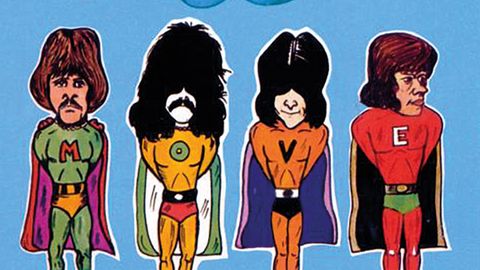During a radio session from May 1968, a couple of months after their debut, Move, was released, vocalist Carl Wayne was asked if they were still playing the “’68 sound of rock”.
“No,” said Wayne. “We got on and off really quickly. Now we’re rock, jazz, blues, everything.” Things were moving fast back then, but The Move’s brief touchdown on psychedelia – they were more a hip, sharp, restlessly creative pop group with a streak of English eccentricity and an ear for striking arrangements – produced one of the most vibrant albums of the year. The group also scored considerable chart success with singles such as Flowers In The Rain (the first song to be played on the inaugural BBC Radio 1 broadcast in 1967) and Fire Brigade, both of which are included on Move, and which showcased Roy Wood as one of the premier songwriters of the late 60s.
After psychedelia, some bands went back to basics with a harder, gnarlier style of rock, while some stuck to pop and others graduated to a proto-prog mix up of styles. The Move embraced them all on 1970’s fabulously odd Shazam. Hello Susie is a hairy rocker with a pop chorus and a staccato instrumental section that seems to have been brought in from another song entirely. By contrast, Beautiful Daughter is just acoustic guitar and strings, and finds Carl Wayne’s warm vocals set against Wood’s adenoidal Brummie tones.
Despite his earlier assessment, it all became a bit much for Wayne, who left after this album, although he gives a spirited performance on an elongated cover of Tom Paxton’s The Last Thing On My Mind which drifts off in places into raga rock. Cherry Blossom Clinic Revisited goes back to the institution mentioned in song on Move, but this time with a heavier demeanour and a lengthy instrumental section including classical quotations. It’s so bizarre one wonders quite how serious they were. But then Wood would soon team up with Jeff Lynne, develop a major cello fixation and form the progressively inclined ELO.


